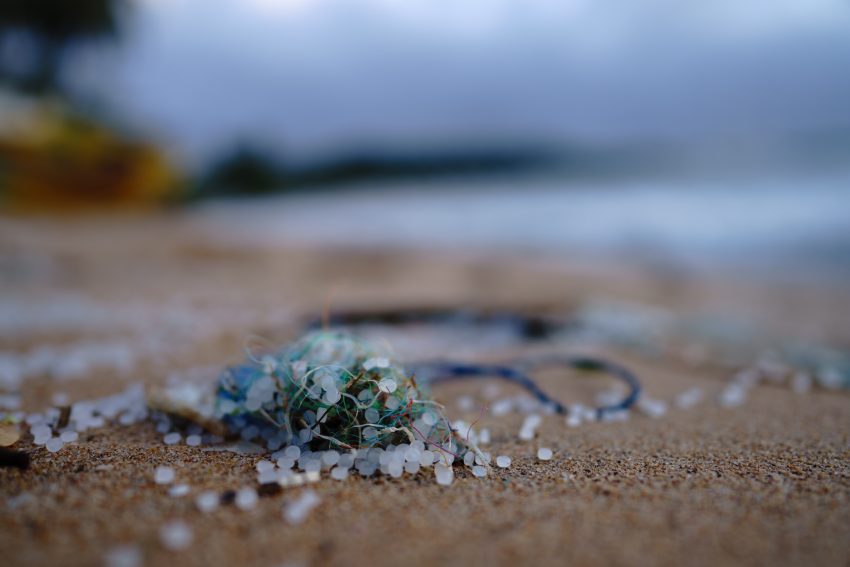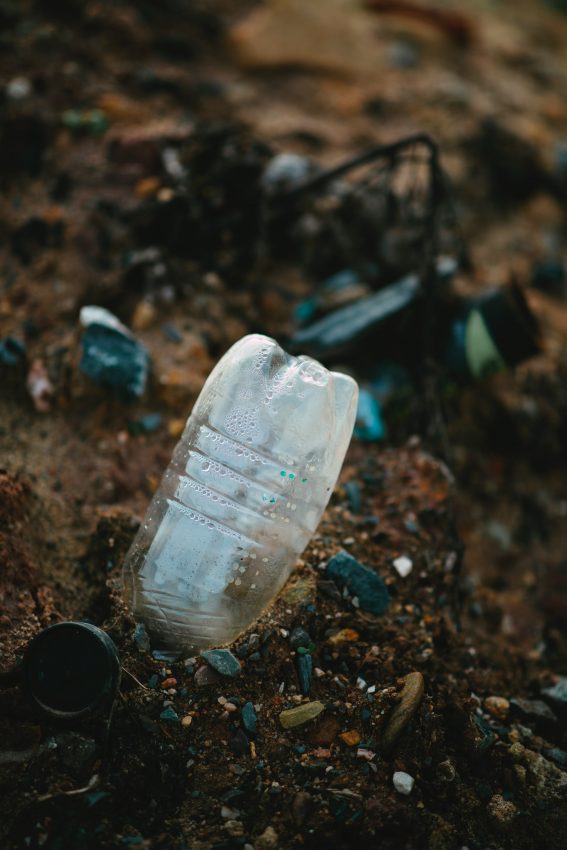Fragments of Plastic Everywhere
In the words of the North Carolina Coastal Federation’s Assistant Director of Policy, Ana Zivanovic-Nenadovic, “Plastic is everywhere.” We use plastic in almost every facet of modern life–to store food, to make clothing and package products we buy, to name a few. This has created many environmental issues, one of the most concerning being pollution from microplastics.
Microplastics are defined as any synthetic fibers or particles smaller than 5 millimeters which cannot be dissolved in water. Research has now shown that these small bits of plastic are everywhere: the air we breathe, the water we drink, the food we eat and the aquatic ecosystems we and our wildlife depend on. The effects of this widespread distribution are detrimental to both human health and environmental health.
The Importance of Talking about the Issue

A large part of the federation’s overall goal is to explore ways to tackle big problems like microplastics. One of the most effective ways to accomplish such a task is to create spaces to share the latest science and policy solutions and have open conversations in order to spread awareness, inform policy and create networks to solve the issues. That’s why the federation organized and hosted the North Carolina Coastal Microplastics Forum. The Forum included talks from professionals involved in the research of microplastics, and culminated in a panel discussion which focused on how to move forward with the information presented.
Over the course of the event, Bonnie Monteleone from the Plastic Ocean Project introduced microplastics and the threats they pose, Dr. Richard Venditti and Dr. Marielis Zambrano from N.C. State University spoke on microfibers, Emily Sutton the Haw Riverkeeper shared information on microplastics in rivers, Dr. Susanne Brander from Oregon State University introduced the connections between microplastics and seafood, Dr. Scott Coffin from the California State Water Resource Control Board spoke about microplastics in drinking water, and Sara Morath from Wake Forest University talked on the subject of regulatory and legal actions.
What We Know and Don’t Know

The ubiquity of microplastics was the main theme of the Forum. With statistics such as the estimated 5.25 trillion plastic particles floating in the world’s oceans, the speakers made the necessity of dealing with the issue evident. The forum also highlighted the concerning ways in which these particles interact with the environment, including low rates of degradation, potential for bioaccumulation, and chemical leaching.
Throughout the forum one thing was made clear, more research is needed for us to understand the full threat microplastics present. Fortunately, the speakers outlined many ways in which individuals and larger organizations could take action to reduce microplastics, fund research, and promote legislation that aids these efforts. Suggestions included becoming aware of one’s daily plastic use and reducing it, installing filters on washing machines, writing to local politicians and policymakers, and continued conversations about the state of microplastics in the realm of science, legislation, corporations and daily life.
Microplastics: Controlling Their Spread is a Battle Than Can Be Won
The panel discussion with Adam Saslow of Kearns & West as moderator and NOAA Marine Debris Program’s Sarah Latshaw, Julie Patton Lawson from Washington, D.C. Mayor’s Office and Todd Miller for the federation as panelist, brought the importance of the Forum’s information to the forefront of the event. Their discussions acknowledged how easy it could be to become discouraged by the science and statistics of microplastics. However, they also discussed how such presentations spread awareness of the important issues which lead to action and prevention. Microplastics are an issue that affects almost everyone and everything, still, through discussions such as those held in the Forum, education, continued scientific research, legislative efforts on all levels, and local and large-scale clean-up this is a battle that can be won.

